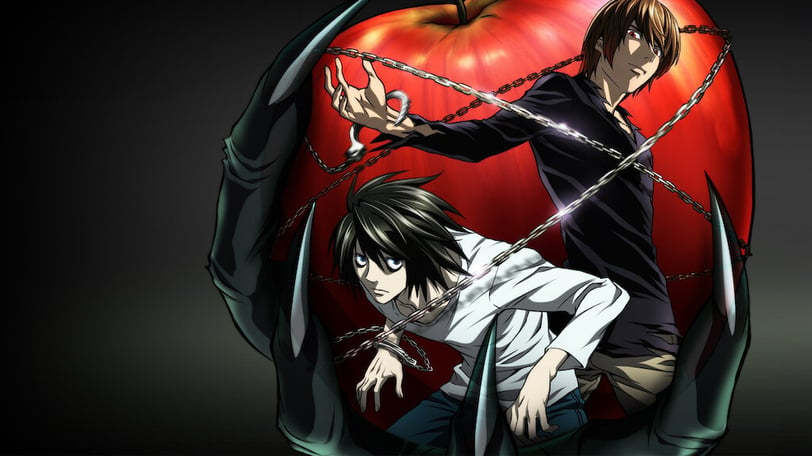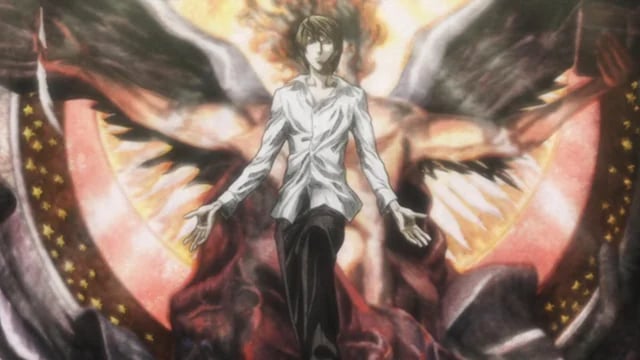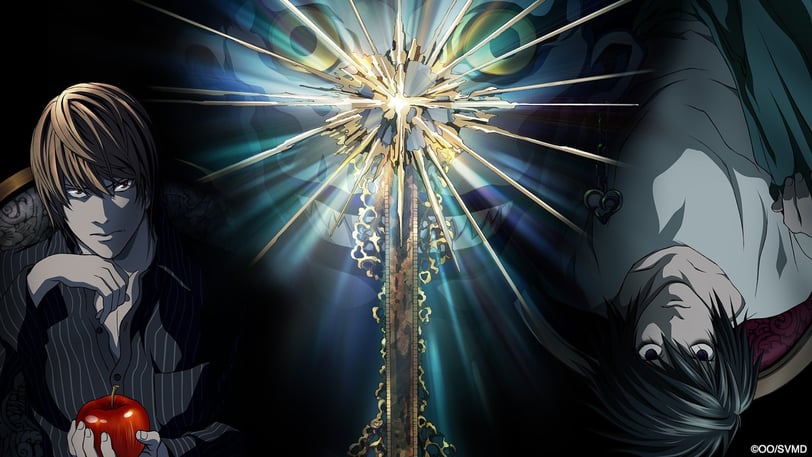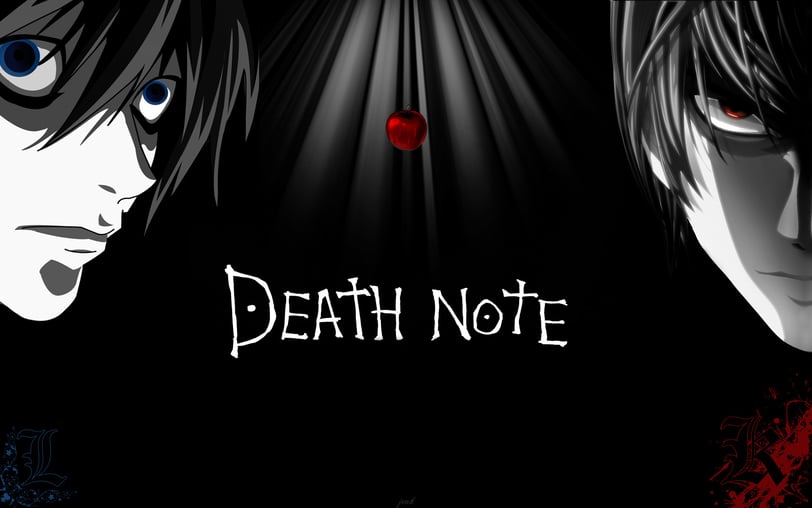Is Death Note Based on a True Story? The Dark Inspirations Behind the Anime
Is Death Note based on a true story? Uncover the dark inspirations behind the anime, from mythology and philosophy to real-life crimes allegedly linked to the series. Dive into the mystery now!
DEATH NOTE
Anime Fever
2/28/20257 min read


The anime Death Note is one of the most iconic and controversial series in modern pop culture. First released in 2006, it quickly gained global popularity, captivating audiences with its intense psychological battles, moral dilemmas, and the mysterious Death Note—a notebook that can kill anyone whose name is written in it.
But with such a dark and intricate story, many fans have wondered: Is Death Note based on a true story? Could there be real-life inspirations behind the concept of the Death Note or its infamous Shinigami? Over the years, theories have surfaced, linking the series to Japanese mythology, philosophical ideas, and even real crimes allegedly inspired by the anime.
In this article, we’ll explore the dark inspirations behind Death Note, uncovering connections to myths, ethics, and reality to see just how much truth might be lurking behind this fictional masterpiece.
The Concept of a “Death Note” in Mythology and Folklore


The intriguing premise of Death Note—a notebook with the power to kill—draws inspiration from various mythological and folkloric traditions. Central to the series are the Shinigami, or "gods of death," whose origins and characteristics offer a rich tapestry of cultural influences.
Shinigami in Japanese Mythology

In Japanese culture, Shinigami are supernatural entities associated with death. The term combines "shi" (death) and "kami" (god or spirit), translating to "death god" or "death spirit." Unlike other mythological figures, Shinigami lack a clear origin in ancient Japanese traditions and are believed to have emerged around the 18th or 19th century, possibly influenced by Western concepts of death and destiny. They are often depicted as guides who invite or lead humans toward death, reflecting a neutral stance rather than malevolence.
Western Influences: The Grim Reaper and Death Lists

The Western counterpart to the Shinigami is the Grim Reaper, a personification of death that emerged in Europe during the 14th century, often depicted as a skeletal figure cloaked in black, wielding a scythe. This imagery symbolizes the harvesting of souls and has become a pervasive representation of death in Western culture. The concept of a "death list," wherein individuals' fates are predetermined, also appears in various Western myths and religious texts, suggesting a cosmic order to mortality.
Grimoires and Forbidden Books

Throughout history, certain texts, known as grimoires, have been reputed to contain magical knowledge, including spells to summon spirits or even cause harm. These books were often banned or censored due to their controversial content. For instance, during various periods, texts like "The Grand Grimoire" were prohibited by religious and governmental authorities for their alleged connection to dark arts. This historical context of forbidden knowledge parallels the Death Note itself—a powerful object that grants its user the ability to determine life and death, raising questions about morality and the consequences of wielding such power.
In essence, Death Note intertwines elements from Japanese and Western mythologies, blending the enigmatic Shinigami with concepts reminiscent of the Grim Reaper and forbidden texts, creating a narrative that resonates across cultural boundaries.
Philosophical and Ethical Questions in Death Note

Death Note delves deep into the moral dilemmas associated with wielding absolute power. The protagonist, Light Yagami, stumbles upon a supernatural notebook that grants him the ability to kill anyone by simply writing their name. This newfound power sets the stage for an intense exploration of ethics, justice, and the consequences of playing god.
The Moral Dilemma of Absolute Power
At the outset, Light's intentions appear noble; he aims to eradicate crime and craft a utopian society. However, as he continues to use the Death Note, his sense of morality becomes increasingly distorted. The series portrays his transformation from a high-achieving student to a ruthless figure with a god complex, highlighting the corrupting influence of unchecked power. This narrative serves as a cautionary tale about how absolute power can lead to tyranny and the erosion of one's moral compass.
Philosophical Influences: Utilitarianism and Beyond
Light's actions can be examined through the lens of utilitarianism, a philosophy that advocates for actions that maximize overall happiness or well-being. Believing he is creating a better world, Light justifies his killings as a means to achieve a greater good. However, his subjective judgment raises questions about who gets to define "the greater good" and at what cost. This reflects the ethical ambiguity inherent in utilitarian principles when applied without checks and balances.
Justice and Punishment Through History
The series also prompts viewers to reflect on historical and contemporary concepts of justice and punishment. Light appoints himself as judge, jury, and executioner, reminiscent of historical figures who have taken the law into their own hands, often leading to authoritarian regimes. This self-righteous approach challenges the idea of a fair and impartial justice system, emphasizing the dangers of vigilantism and moral absolutism.
In essence, Death Note serves as a profound exploration of the ethical complexities surrounding absolute power, the pitfalls of utilitarian thinking, and the timeless debate over justice and morality.
Real-Life Crimes Allegedly Inspired by Death Note


Since its debut, Death Note has not only captivated audiences but has also been linked to several real-life incidents where individuals reportedly drew inspiration from the series. These events have sparked debates about the influence of media on behavior and have led to discussions about censorship and societal impact.
Documented Cases of Crimes Influenced by Death Note
In various countries, there have been reports of crimes where Death Note was cited as an influence. For instance, in 2017, a tragic incident in Russia involved a teenager who was found deceased with a Death Note notebook near his body, leading authorities to investigate potential links to the anime. Similarly, in the United States, schools have reported students bringing replica Death Note notebooks, listing names of peers, which raised significant concern among parents and educators.
Examples of Incidents in Japan, the United States, and Other Countries
Japan: While Death Note originates from Japan, there have been limited reports of crimes directly linked to the series within the country. However, the cultural impact is profound, with discussions about the ethical implications presented in the anime.
United States: Several schools have faced incidents where students possessed replica Death Note notebooks. In some cases, these notebooks contained names of fellow students, leading to suspensions and heightened security measures.
Other Countries: In China, the series faced bans due to its dark themes, especially after reports of students creating their own Death Note notebooks. Authorities expressed concern over the potential psychological impact on youth.
The Anime’s Impact on Society and Censorship Debates
The association of Death Note with real-life incidents has ignited debates about the role of media in influencing behavior. Critics argue that exposure to such content can negatively affect impressionable minds, leading to calls for censorship or age restrictions. For example, in 2021, a Brazilian television program aired a segment highlighting the potential dangers of children accessing violent content, specifically mentioning Death Note. This broadcast led to discussions about the appropriateness of such content for younger audiences and whether stricter regulations should be implemented.
Conversely, supporters contend that fictional media serves as a platform to explore complex themes and that individuals are responsible for distinguishing fiction from reality. They caution against over-censorship, which could stifle creative expression and limit access to diverse narratives.
In summary, while Death Note has been linked to certain real-life incidents, it's essential to approach the topic with nuance. The series offers a narrative that challenges viewers to ponder moral and ethical questions, and its impact varies based on individual interpretation and societal context.
Death Note and Psychological Influences


Death Note has captivated a diverse audience, including youth, true crime enthusiasts, and those intrigued by complex moral narratives. Its exploration of vigilante justice and the psychological intricacies of wielding absolute power resonate deeply with viewers.
Appeal to Diverse Audiences
The series' protagonist, Light Yagami, embodies a character whose journey from an idealistic student to a figure consumed by a god complex offers a profound psychological study. This transformation appeals to viewers interested in the human psyche and the effects of power on morality. Additionally, the cat-and-mouse dynamic between Light and the detective L provides a thrilling narrative that keeps audiences engaged.
Fascination with Vigilante Justice
The concept of vigilante justice—taking the law into one's own hands—has long intrigued society. Death Note delves into this theme by presenting Light's mission to eliminate criminals using the Death Note. This narrative challenges viewers to consider the ethical implications of such actions and reflects humanity's ongoing fascination with moral ambiguity and the boundaries of justice.
Beyond its narrative, Death Note has significantly influenced pop culture and critical thinking. The series has inspired various adaptations, including live-action films and video games, and has sparked discussions on morality, ethics, and justice. Its complex characters and thought-provoking themes encourage viewers to engage in introspective analysis and debate, highlighting the series' enduring impact on both individual perspectives and broader cultural conversations.
In essence, Death Note serves as a catalyst for exploring deep psychological and ethical questions, resonating with a wide audience and leaving a lasting imprint on popular culture.
Conclusion
Throughout this article, we have explored the real-life inspirations behind Death Note, ranging from mythology and philosophy to actual crimes allegedly influenced by the series. While Death Note is a work of fiction, its themes draw from universal human concerns, such as justice, morality, and the consequences of power.
The presence of Shinigami in Japanese folklore, along with parallels to the Grim Reaper and other supernatural death entities across cultures, suggests that the idea of a Death Note is not entirely new. Similarly, philosophical concepts like utilitarianism and debates over vigilante justice are central to the story, making it a thought-provoking exploration of ethical dilemmas.
Moreover, real-world cases where Death Note was cited in crimes highlight how fiction can sometimes blur the lines with reality. This raises questions about the responsibility of media creators and how society interprets dark narratives.
Ultimately, Death Note may not be based on a true story, but its inspirations are deeply rooted in mythology, philosophy, and real-world events. Its ability to spark discussions on justice, power, and ethics ensures its lasting impact on pop culture and critical thinking.
Read Also: The 6 Hidden Messages in Death Note You Probably Missed
Read Also: 10 Mind-Blowing Death Note Theories That Will Change How You See the Anime
Read Also: Every Version of Death Note Ranked: Which One Is the Best?
